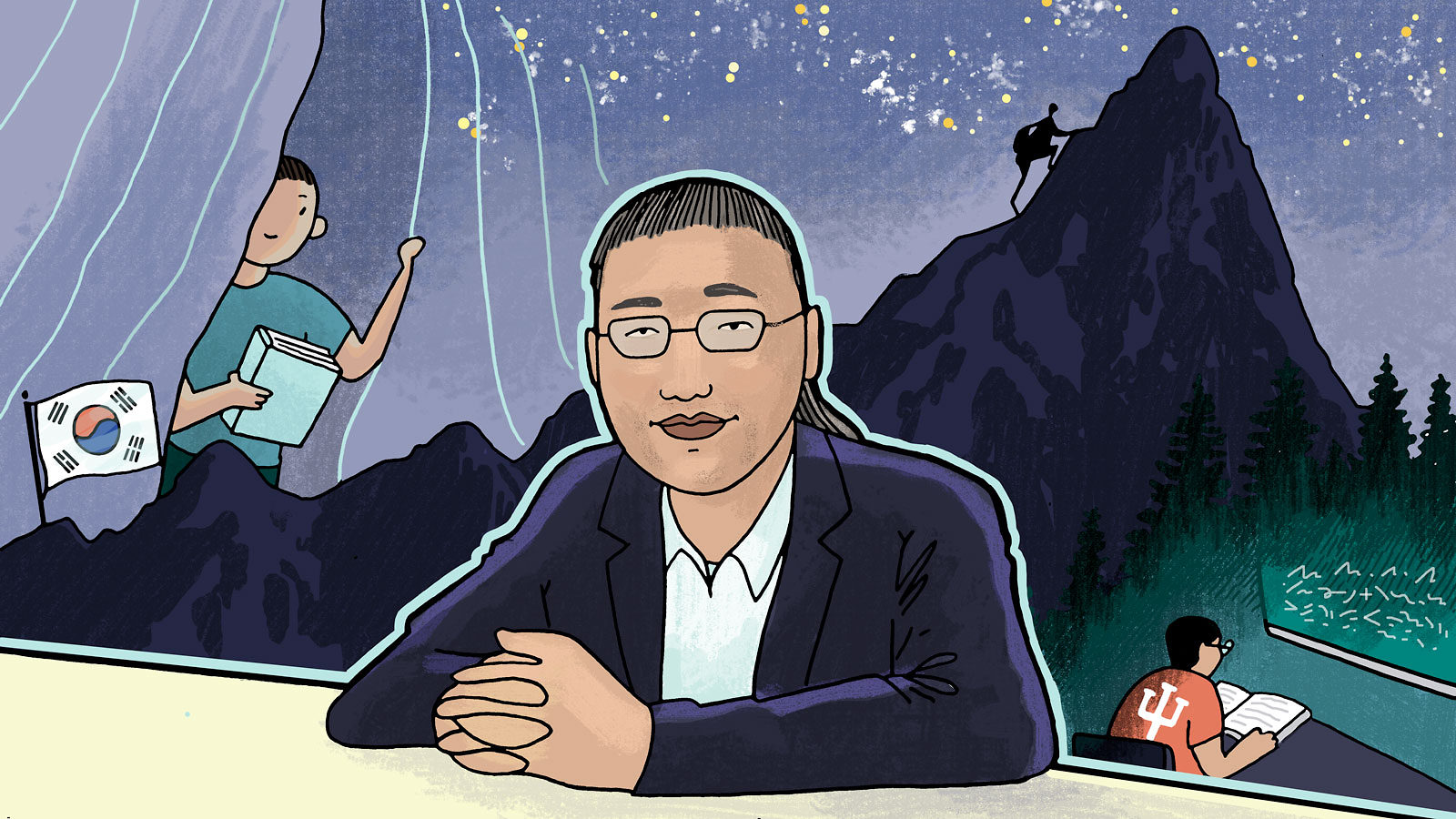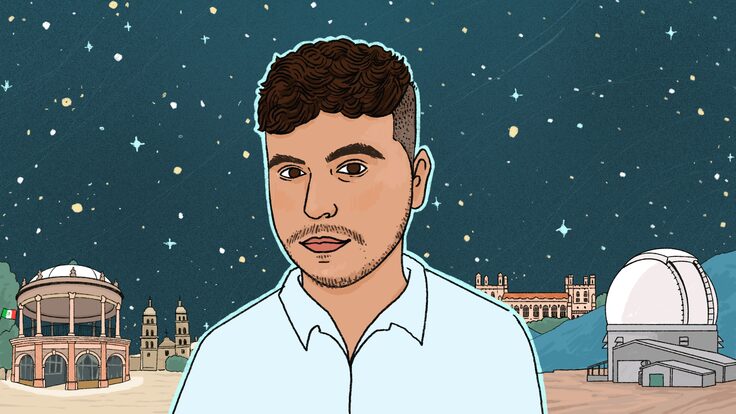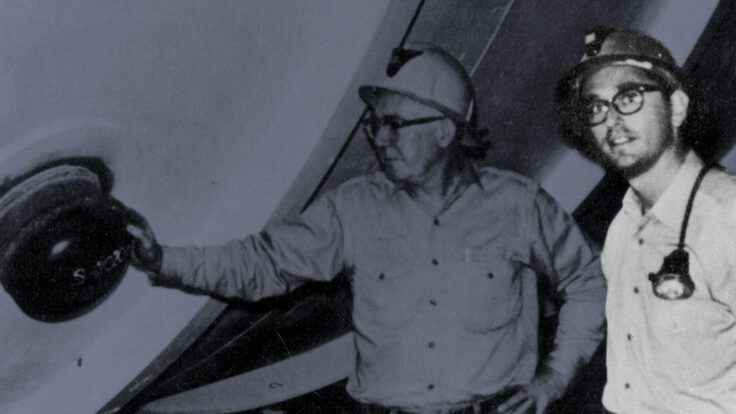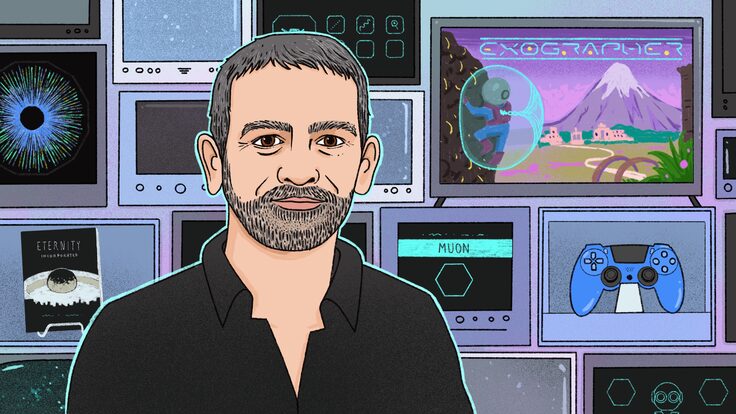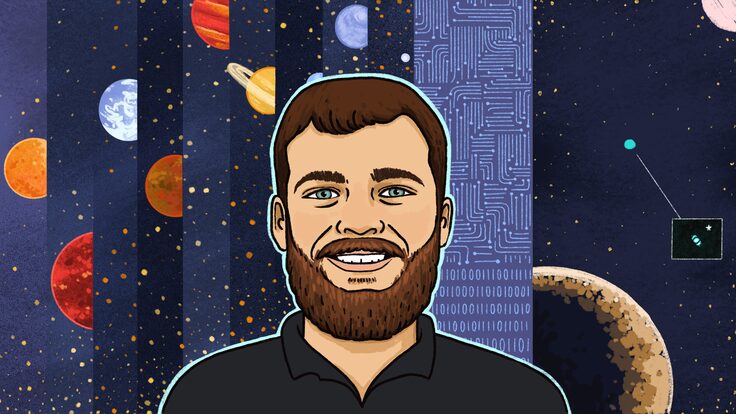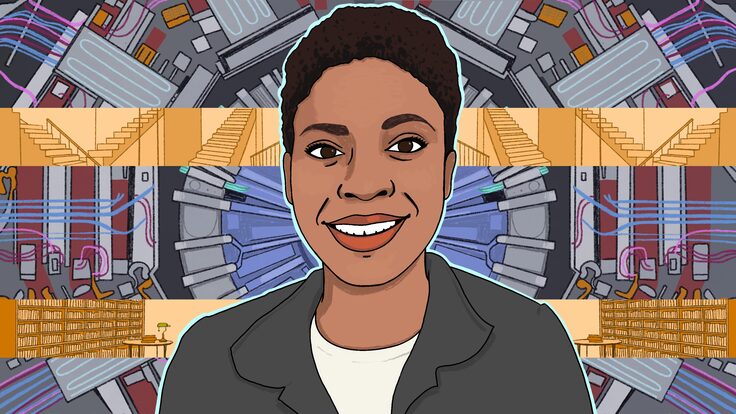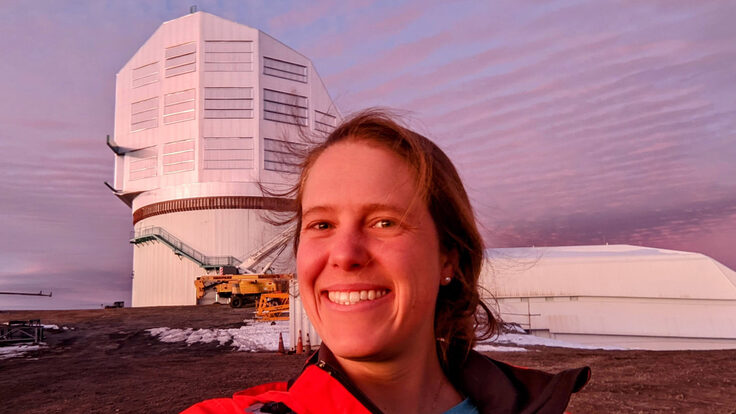Physicist Chang Kee Jung has a unique hairstyle. From the front it looks quite typical, his black hair cut short. But from a place low on the back of his head, right above his neck, long, slightly curly hair flows down his back.
“I can safely say this hairstyle, I think, is original,” he says. “It's very important for me because for me, it is a symbol of freedom.” Freedom for Jung, who was once thrown in jail and beaten for participating in an anti-government protest in Korea, is “the most important thing.”
A poor child born in South Korea right after the Korean War, Jung knew what he wanted to be by age six: a professor. At age 12 he learned that the universe has a finite size, wondered what was beyond it, and resolved that he would have to become a physicist to find out.
Despite having to walk an hour and a half through fields to get to elementary school every day (“In winter times it was really, really cold, because I didn't have gloves or even proper shoes,” he says), Jung became the first in his school's history to get into one of the top junior high schools in the country. He was used to being at the top of the class, but at this new school, he only ranked in the middle. He nervously brought his first junior high school report card to his father, expecting criticism. Instead, his father told him, “Now you know the world is full of smart people.”
Determined, Jung moved his way up through the class ranks. By the time he graduated from high school, he was one of the top five students, and was one of only 30 people accepted that year by the physics department at Seoul National University.
As a sophomore, Jung joined the SNU College of Liberal Arts and Sciences Alpine Club. Because he has what he calls “a sort of obsessive” personality, he says, “as soon as I fell in love with [mountaineering], I didn't study at all.”
The Alpine Club in Korea would take trips into the mountains as long as 30 days, carrying backpacks that weighed up to 100 pounds. As much as Jung loved it and devoted himself to it, he also knew it was incredibly dangerous.
“I lost several close friends in the mountains,” he says. “Young people should be encouraged to be exploratory and adventurous, but I came to the realization that life is so precious.”
“I am in a position where I am not going to tell young people to go rock climbing, ice climbing. We are living in a really special period of time, out of the infinity of time, that is too precious to die for, whatever pleasure you are getting through these things.”
But still, Jung says he remains tempted by risky thrills. He has gone bungee jumping and skydiving. “You know those suits with wings, where you look like a flying squirrel?” he says, referring to the outfit worn in wingsuit flying, an activity notable for its relatively high fatality rate. “I would love to do that.”
Jung's avid pursuit of mountaineering in college took a toll on his grades. He finished school with a grade point average of 2.73. Afterward he applied to the physics PhD program at Indiana University, writing a long essay that described the circumstances behind his grades and backing up his case with near-perfect TOEFL and GRE test scores. He says an IU department member later told him they had spent hours discussing before finally deciding to give him a chance.
“Can you imagine being on the graduate admission committee,” he says, laughing, “and you see this application with a GPA of 2.73? I am forever grateful for their openness, and it really marks the strength of the US culture. I believe it's something we really need to preserve. Being open-minded, looking at things, finding things that are special about each person rather than using the same ruler for everyone.”
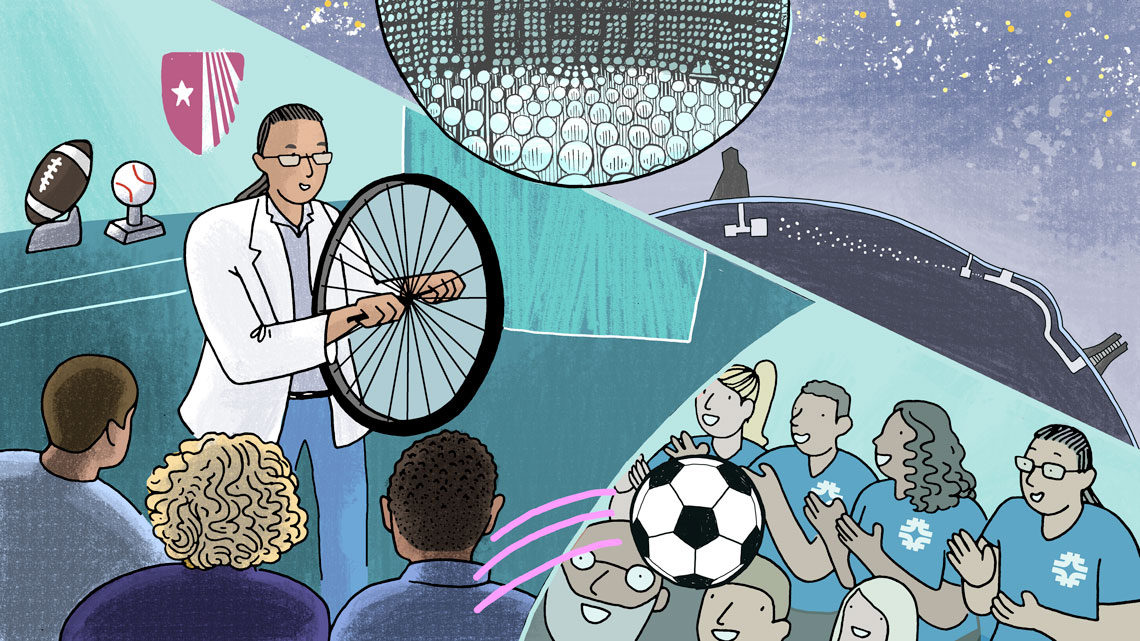
At Indiana University, Jung focused on less death-defying interests, such as physics—and singing and music composition.
“I’ve loved singing my whole life,” Jung says. He taught himself to yodel when he was in the Alpine Club, and even wrote a mountaineering song that was still being sung by club members when he returned to visit 20 years after he left. As part of his music composition class, he had a violin and cello piece performed at the Bloomington Composer's Symposium. He also took the chance to attend a composition workshop led by none other than Leonard Bernstein. (Yes, that Leonard Bernstein.)
Now a professor in the department of physics and astronomy at Stony Brook University, Jung continues to keep himself busy. He is a scientific associate at CERN, and he holds a class for non-physics majors every fall on the physics of sports. He has been featured as an expert on this topic on ABC News, MSNBC and NFL Films Presents, among others.
His research focuses on neutrinos, ghostly particles that pass through us by the trillions each second. He has played various leadership roles in the two largest international neutrino collaborations: DUNE, hosted by the US Department of Energy’s Fermi National Accelerator Laboratory, and T2K at J-PARC in Japan.
Jung started a program at Fermilab called Neutrino Social, encouraging what he calls “interacting diversity.”
At places like Fermilab, “when students come from small countries, they really do not have networks of people to socialize,” he says. “It can be very lonely and confining. So what I want is for Fermilab to be a place not just where diversity exists, but I want them to interact. That's when you get the true value of a diverse society.”
The Neutrino Social is hosted by a different member every week, and sometimes the host organizes a special outing. Past activities have included attending a Chicago Fire soccer game and going salsa dancing.
Jung’s sociability is unique, according to Davide Sgalaberna, a postdoc working on T2K and DUNE. “He’s not one of those leaders who only speak to people at their same level,” he says. “Even if you are not the same level, he's happy to help you or give suggestions, or even have coffee with anybody.”
“Not all the people in his position are like that. He’s not just a good physicist, he is also a good person.”
Jung says mentoring young people is one of the best parts of his job.
“Doing experiments and all that is good, but in the end...helping young people to have good careers and find happiness for themselves—I see that as one of the most important goals for myself,” he says. “I love teaching and advising. That's why I became a professor. I will always be a professor.”



